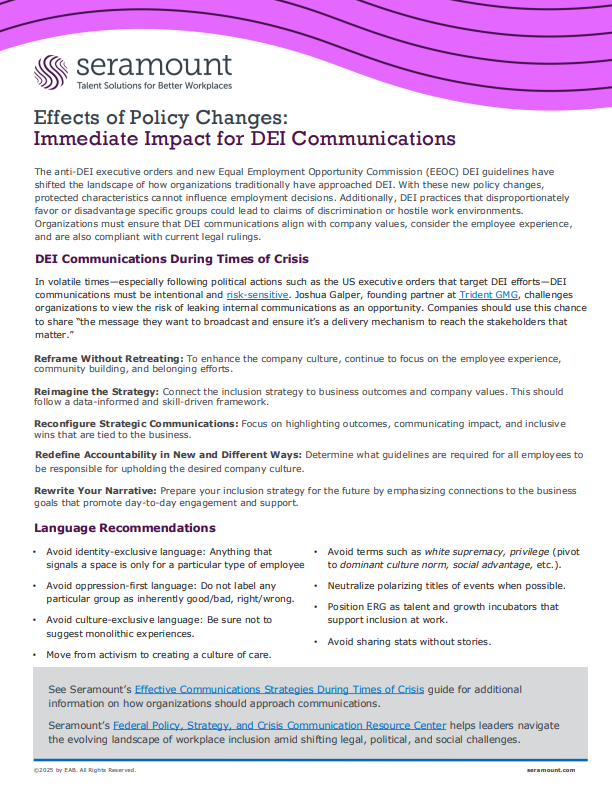Guides and Tools
Effects of Policy Changes: Immediate Impact on DEI Communications
Anti-DEI executive orders and the Equal Employment Opportunity Commission guidelines have shifted the landscape of DEI. This one-pager will be regularly updated to provide current information on the policy changes affecting DEI Communications.
Sign in to view this resource
Please sign in to access this and other member resources. If you are not yet a Seramount member, please email us at [email protected].
Topics
Related
Full size image view




